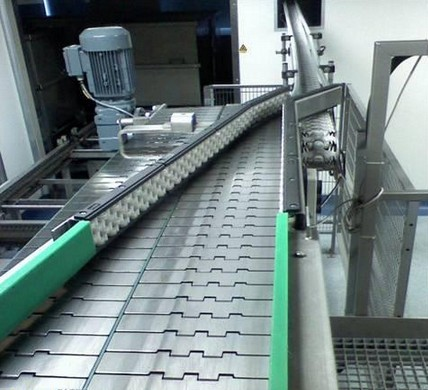Chain conveyor electrical requirements for reducer
Due to the different models of reducers and motors used in different working surface chain plate conveyors, the interfaces for sensor installation will also change. Therefore, determine the installation location of the reducer sensor after thorough investigation. Due to the special environment of the working surface chain plate conveyor, the sensor will inevitably be collided or damaged. In order to ensure that the sparks generated when the sensor is damaged (mainly refers to the sensor signal line and circuit being exposed and leaking outside), it will not cause the sensor where it is located. When an explosion occurs in an explosive gas environment, both the sensor power supply and the transmission signal need to meet intrinsic safety requirements. That is to say, the sensor itself should be at least an intrinsically safe sensor, and the power supply of the sensor should meet intrinsically safe requirements.

Fault diagnosis is to judge the operating status or abnormal conditions of the chain conveyor. It has two meanings. One is to predict and forecast the operating status of the conveying equipment before the chain conveyor fails; the other is to make predictions on the location, cause, type and extent of the failure after the equipment fails. judge and make maintenance decisions. Its main tasks include fault detection, identification, evaluation, estimation and decision-making. Fault diagnosis methods include two categories: fault diagnosis methods based on mathematical models and fault diagnosis methods based on artificial intelligence. The fault diagnosis method based on neural network and information fusion technology explains the basic principles of neural network and information fusion. At the same time, examples of fault diagnosis based on neural network and fault diagnosis based on evidence theory are given.
The neural network of chain plate conveyor can be divided into two categories according to the different connection methods between neurons: feedback-free forward network and mutual combination network. The feedback-free forward network consists of an input layer, an intermediate layer and an output layer. The intermediate layer can be composed of several layers, and the neurons in each layer can only receive the output of the neurons in the previous layer. There can be a connection between any two neurons in the interconnected network, and the input signal must be repeatedly transmitted back and forth between the neurons. After several changes, the chain conveyor tends to a certain stable state or enters periodic oscillation and other other state.
-
01-30
Lifting Machine Disc Feeding and Sorting Machine
The disc material handling and sorting machine for elevators is an integrated, modular intelligent front-end processing system that combines three major functions—vertical lifting, centrifugal material handling, and optical sorting (or weight sorting)—into a single unit. Specifically designed for
-
01-22
Small bag packaging machine enterprise: innovation driven, leading the new future of the packaging industry
In today's industrial production field, the efficiency and refinement of the packaging process are increasingly valued. As a key equipment for product packaging, the development and application level of small bag packaging machines directly affect the packaging process of many industries. With t
-
01-13
How to transform and upgrade vertical packaging machines, and bravely shoulder the important task of building automatic packaging machinery in the era
A complete set of granule packaging machines leads the golden period of developmentIf a company wants to quickly establish its brand image in the packaging market, it needs to accelerate the transformation of technology packaging into real technology packaging productivity, promote the close integra
-
01-04
Bucket elevator company leads industry innovation
The bucket elevator is a core mechanical device for vertical transportation of bulk materials, widely used in mining, building materials, chemical industries, grain, metallurgy, and other fields. Its working principle involves loading materials from the bottom through buckets fixed on traction compo

